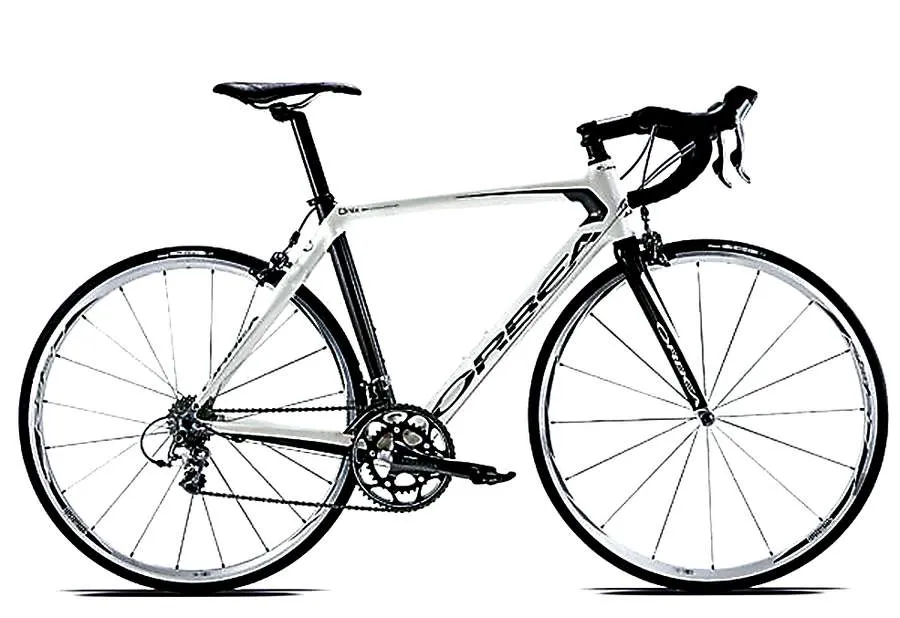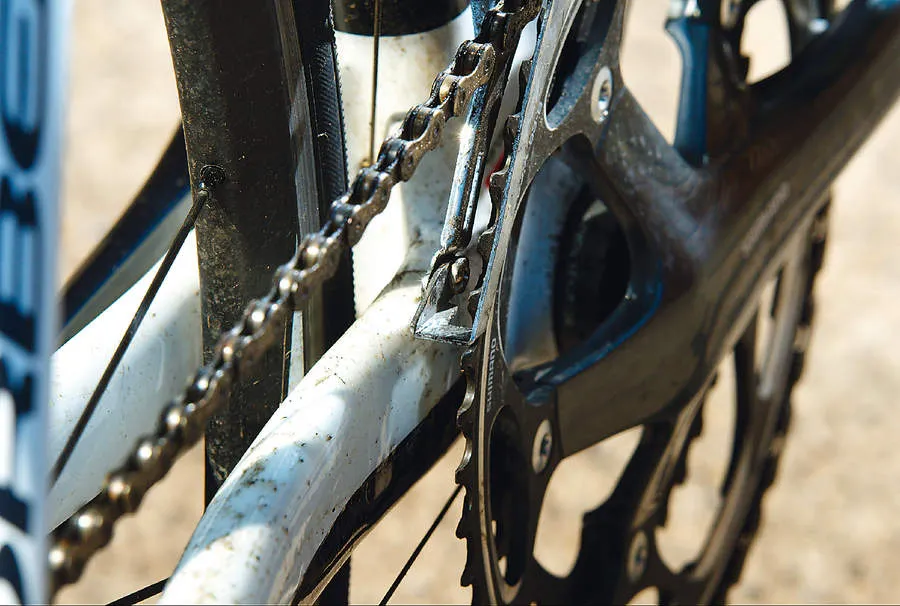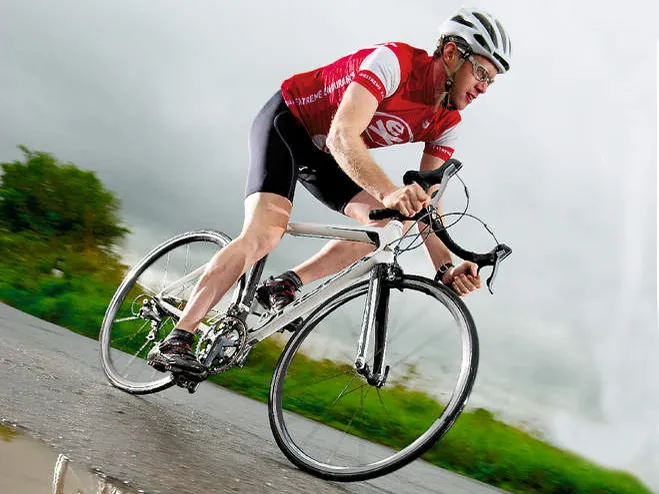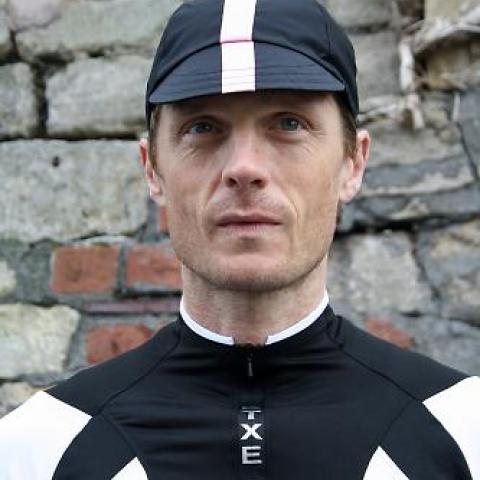The Onix is the cheaper of the two carbon models available from Spanish superbrand Orbea. Nevertheless, it takes much of its inspiration from its range-topping big brother, the Orca, and still packs an explosive punch and a properly characterful ride.
Ride & handling: Rock-solid performance that sprinters will love - just don't expect any subtlety
The Onix is heavier than some of its price rivals so it needs more grunt to get it going in the first place but it responds well when you get your shoulders into it.
There’s no sense of flex or twist anywhere along the effort line through the broad bars and stem, down tube, big bottom bracket and chainstays.
The tardy tyres and heavy wheels mean it’s not as sprightly as it could be but as soon as you increase the pressure on the pedals, there’s an instant increase in pace.
While it feels compact and muscular there’s actually a generous amount of reach if you slam the saddle back. It’s definitely more work to keep a steady gear rolling on long climbs on the Onix than it is on lighter bikes, though.
The frame and fork stiffness plus relatively relaxed angles give it an outstanding cornering and descending performance, with the relatively heavy wheels actually increasing its stability.
It also carves and rails through corners really well on the flat, with its punch out of the far side making it an excellent short course option.
The downside is a firm and unforgiving ride if the road surface isn’t up to scratch and a tendency for the back wheel to jump around on rough climbs.

Chassis: Quality frame shares features with top-end model, but skinny fork's surprisingly hefty
While the Onix is made of T700 carbon fibre – an intermediate module type of carbon fibre and the base material for most mid-price carbon bikes – it beneits from the same SSN (Size Specific Nerve) technology featured on the Orca.
Basically, what this translates to is a bike that offers a distinctly purposeful, compact-framed ride through a suite of oversized tubes.
The pipework passes through a range of rounded, diamond, triangular and even coffin-shaped sections between the bulged head tube and tapering seat tube.
The down tube is already so wide that it nearly scrapes the chainrings whilst the bottom bracket block is a particularly butch three-dimensional piece.
Large gauge seat- and chainstays meet at the naked alloy dropouts with a chunky wishbone section completing the chassis circuit.
While all sizes look beefy, the SSN technology means each frame size has been carefully tuned in terms of wall thickness, tube profile and geometry, so that every bike in the Onix range ends up delivering the same standard of ride quality.
In fact, the Ziccs AC alloy crown and steerer forks are the only relatively skinny part of the whole chassis. Ironically, they’re also the only really heavy bit on an otherwise mid-weight chassis.
Detailing is smooth throughout and we really like the extra-broad Orbea headbadge, which doubles as a slotted gear cable guide. The Onix comes in four colour options (two reds, a blue and a white/grey) or as frame and forks for £1,099.

Equipment: Reasonable spec for the price, including full Shimano Ultegra SL
Considering the chassis price you’re getting a decent set of kit to hit the road on, including full Shimano Ultegra SL with its light weight and sleek gunmetal grey looks. 2010 bikes will shift to the new Ultegra 6700. The frame’s certainly man enough to cope with powering non-compact chainrings round too.
The RS20 wheels don’t exactly set the ride on fire but they’ll last for ages even if you relegate them to training duties with a lighter race set when you can afford to.
The Vittoria tyres feel somewhat leaden. This was something that became especially apparent when we swapped the wheels over mid ride.
The Selle Italia saddle is a proven favourite and the carbon seatpost looks the part even if it’s not particularly light.
The sturdy Orbea own-brand Zeus stem and bars add weight but the width and stiffness give a really useful edge when you’re wrestling a big gear.

